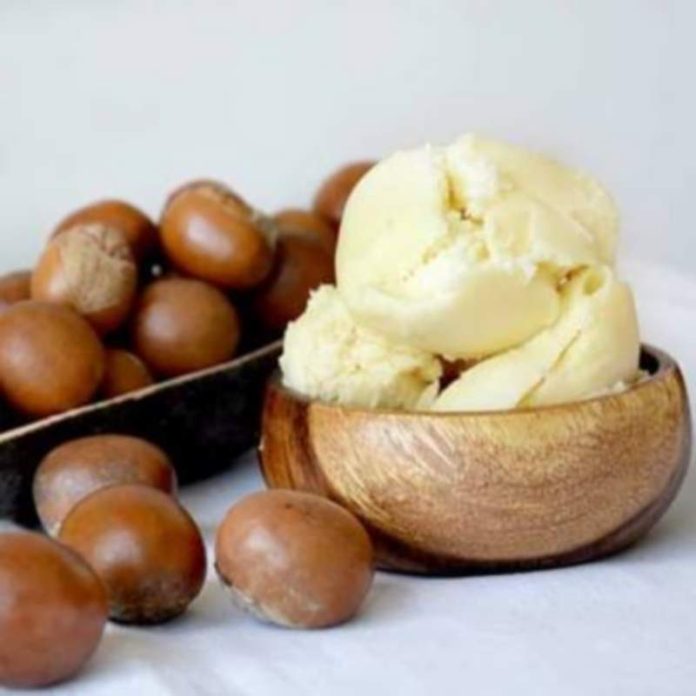Shea butter is an all–natural fat that is gotten from the nuts of the Shea or Karite tree.
Shea butter contains loads of vitamins and antioxidants like vitamins E, A, and F. Apart from the fact that it also contains catechins – a type of antioxidants needed by the body – it is also packed with skin-friendly properties like stearic and oleic acid.
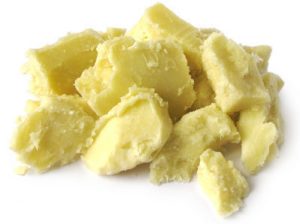
Here are some of the reasons you should enjoy the goodness of Shea butter.
Helps to fade scars

According to online sources, Shea butter might just be all you need to clear those unwanted scars from your body.

A study published by the National Library for Biotechnology Information suggests that consistent use of Shea butter could also heal keloids, a type of skin scar that keeps growing and becomes bigger than the original wound.
Rubbing Shea butter on affected parts of the skin would boost the production of collagen, thereby diminishing the prominence of scar tissues.
Aids wound healing
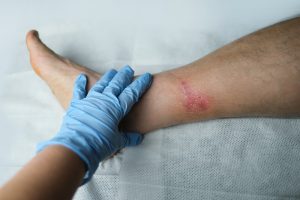
The triterpenes content of Shea butter makes it a great option for healing wounds as it promotes the repair of damaged tissues through the reduction of reactive oxygen species-production in cuts or wounds. This makes for quicker healing and closure.
Apart from this, studly claims that applying Shea butter on a cut or wound can also help to protect it from dust and other environmental irritants that could aggravate it or get it infected.
Moisturizes skin

Dry skin can be such a challenge, especially during the harsh harmattan season. But, don’t you worry; Shea butter just might be all you need to take care of it.
The fatty acid content of Shea butter helps to strengthen the skin barriers that trap moisture in the skin, thereby keeping it lubricated.
Again, a 2018 research published by the National Library for Biotechnology Information notes that Shea butter’s linoleic acid can aid in fighting inflammation and also help in skin hydration.
Fights eczema
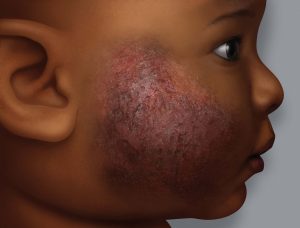
Eczema is a skin condition that is characterized by dry, itchy skin and reddish rashes. According to Health Cleveland, one of the main factors responsible for eczema is the lack of sufficient fatty acids in the skin.
Applying Shea butter on the skin can help to create and fortify the barriers of the skin. This will aid in sealing-in moisture and also defend the body against harmful parasites.
A study also claims that the linoleic acid in Shea butter can help fight eczema.
Anti-ageing effects
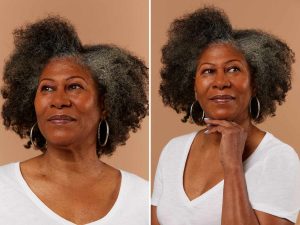
Shea butter is rich in vitamins A and E which are crucial for a healthy skin. Retinoid, a lab version of Vitamin A, is a major content in skin care brands used to fight wrinkles and firm up the skin. It helps to strengthen the skin and make it plump by boosting collagen production, thereby slowing down sagging, studies say.
This is because Shea butter is rich in alpha-tocopherol, a form of Vitamin E, with high antioxidant property that is said to prevent skin cell damage and also ensures it stays moisturized.
“By boosting collagen production and promoting new cell generation, Shea butter may help reduce what researchers call photo-aging – the wrinkles and fine lines that environmental stress and aging can create on the skin,” experts say.
Relieves arthritis pain

A 2016 study says Shea oil may aid the fight against arthritis pain, and that its anti-inflammatory ingredients could also keep the joint from deteriorating.
Useful for sinusitis, nasal blockage

Shea butter can also be used as a nasal drop to relieve discomfort from nasal passage inflammation, according to a 1979 study.
The study, published in the National Library for Biotechnology Information, says humans suffering from mild to severe cases of nasal congestion were split into groups; one group was administered Shea butter, while the other groups were given xylometazoline and petroleum jelly.
Those who were treated with Shea butter got significantly better than the other groups.
Bottom line
You can try these at home, but don’t neglect to see your doctor as necessary.

